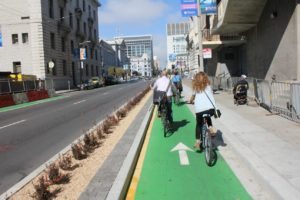Read about 2 of our Fraser Valley Climate Action Campaigns to fight climate change. (and find things you can do more under “take Action”)

Shifting away from Polluting “Natural” Gas
British Columbia produces about one-third of Canada’s natural gas, making this a “made in BC” problem. “Natural” gas is actually methane, a highly flammable, explosive gas that is harmful to human health. The term “natural gas” is just a marketing tool to promote fossil fuels.
The process of extracting, transporting, storing, distributing, leaking, and burning methane is far from natural and has severe impacts on both the planet and our atmosphere. In BC, 29% of total and 60% of individual CO2 emissions come from “natural” gas, making it crucial to reduce carbon emissions by switching to cleaner electricity. Did you know that the CO2 produced by our furnaces and hot water tanks will remain in the atmosphere for 300-1000 years?
In BC, 97% of our electricity comes from hydro and other renewable sources, which are significantly cleaner. Electrifying our energy use is an effective strategy to combat climate change. Right now, there are thousands of dollars in incentives for homeowners who want to make the switch. The sooner we stop using natural gas, the sooner we can enjoy cleaner air and reduce the pollution that drives climate change.
Want to Help? Here’s How You Can Get Involved:
- Write about clean energy incentives like heat pumps, insulation upgrades, and electric vehicles.
- Contact local heating companies to support clean heating technology.
- Inform local government about how good bylaws can stop the spread of polluting technologies.
- Help local governments endorse the Fossil Fuel Non-Proliferation Treaty (FFNPT).
- Encourage local governments to join a class action lawsuit requiring oil and gas companies to pay for the damage caused by their pollution.
- Write letters to the editor to educate our community about these issues.
- Assist in creating presentation materials to educate local groups about climate change.
- Write about how using methane for cooking harms indoor air quality and worsens respiratory issues like childhood asthma.
- Encourage local businesses to switch to clean energy for their operations.
- Urge local governments to make their operations as carbon-free as possible.
- Share your ideas to help shape our plans.
- Help us connect and collaborate with other like-minded groups.
Promoting clean & Active Transport.
In British Columbia, 38% of carbon emissions come from transportation, from cars and trucks burning fossil fuels. Many of our communities are designed primarily for cars, making it harder to walk, cycle, or use public transit. This is a big challenge, but the timing is right to make changes. We have new technologies available to us. The price of batteries is falling and they are becoming greener every year. What is more, COVID taught us that tele-work could replace daily commutes with quick efficient connections to our workplaces. Together these technologies promise to take a big bite out of transport related carbon emissions.
EV’s are part of the solution
There are substantial government incentives to buy new electric vehicles (EVs). If you have an old or unreliable vehicle, consider switching to a battery electric vehicle. Several organizations are ready to help you make the transition to cleaner driving.
At the very least, avoid buying a new gas-powered car. CarbonBrief debunks 21 myths about EVs here. Worth a read. We want auto manufacturers to see that the demand for gas cars is shrinking, pushing them to focus on electric vehicles instead.

Bike Lanes are part of the solution
E-bikes and e-scooters are widely available and can replace many car trips. Imagine never needing to find parking, stop at a gas station, or get stuck in traffic. It’s possible, as shown by cities like Paris, which began transitioning to a 15-minute city during COVID, and Amsterdam, which replaced expensive car roads with cheaper, cleaner cycling infrastructure. Bike lane infrastructure makes the roads safer for everyone (including those driving light duty vehicles). It is infrastructure for mobility scooters, bikes, parents pushing strollers, older people with grocery carts, students riding to school, people commuting to work. It is infrastructure for us. Infrastructure we urgently need.
Even Portland, a car-centric city, has made cycling and transit enjoyable. We can achieve this too. We just need to organize, plan, and invite others to join us.
Want to Help? Here’s How You Can Get Involved:
- Ride, video, and evaluate bike lanes.
- Summarize action items for local government.
- Educate government leaders about active transportation.
- Work with Fraser Health and other organizations to support safer infrastructure for active transportation.
- Write letters to the editor to inform your neighbors.
- Organize a community bike ride.
- Engage organizations that serve older people, youth, and people with disabilities to advocate for safe infrastructure.
- Contact local bike shops to encourage them to support better bike lanes and active transportation.
- Advocate for local governments to sign on to initiatives promoting safe and sustainable transportation.
- Prepare presentation materials to educate local groups about the benefits of active transportation.
- Encourage local businesses to support and promote active transportation in their operations.
- Share your ideas to help shape our plans.
- Help us connect and collaborate with other like-minded groups.
Thanks for reading about our Fraser Valley Climate Action Campaigns to fight climate change.
